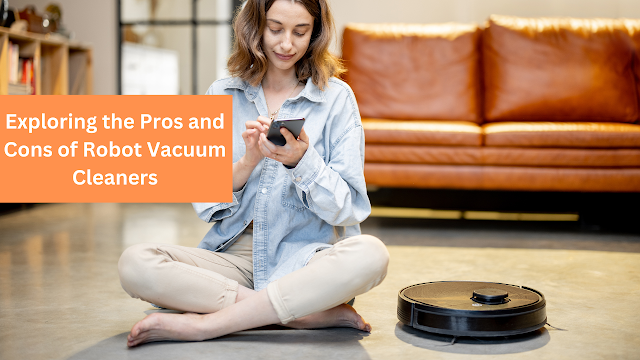- July 20242
- May 20243
- August 20232
- June 20235
- May 20232
- April 20231
- March 20233
- February 20234
- January 20234
- December 20224
- November 20223
- October 20222
- September 202210
- August 20221
- July 20222
- June 20226
- May 202212
- April 202213
- March 202219
- February 202217
- January 202218
- December 202119
- November 202118
- October 202132
- September 202135
- August 202138
- July 202143
- February 20213
- January 20217
- December 20208
- November 20206
- October 20208
- September 20208
- August 20208
- July 20208
- June 20206
- April 20194
- March 20194
Labels
- Affiliate
- Affiliate Marketing
- Android
- Bitcoin
- blogger Tutorial
- Cashback
- Computer
- Crypto
- Cryptocurrency
- DIY Tutorials
- Earn Money
- Ecommerce
- Email MArketing
- facebook tutorial
- Family
- Gadgets
- Gamer and Console
- Hobbies and skills
- Home and backyard
- Home building
- Home electronics
- Home furnitures
- Home Gardening
- Homework
- House care
- How to
- How to build
- How to write
- infos
- Insurance
- internet
- Internet and security
- internet Marketing
- internet Services
- Investing
- iphone
- KDP Interior Templates
- Life Care
- life Hacks
- Linux Tutorial
- Mac
- make Money
- Online Solutions
- Pet care
- Products Review
- Reviews
- Search Engine
- Security
- SEO
- shopping
- Smart Home
- smartphone
- social media
- Software Tutorial
- SSEO
- Tech Problem
- VPN
- Wallet and Money
- Web Hosting
- Web Tutorials
- Windows
- work
- Work online
- Youtube Review
- Youtube Tutorial
- Youtubers Tutorials
Dealing with visitors links in blogger comments Are you bothered by the links that visitors put inside your blog comments? I will offer you a set of solutions to deal with it without having to delete it. The comments section affects one way or another the arrangement of your blog and the strength of its archiving. We know that one of the simplest ways to bring visits to the site is to publish its link in a group of places, including comments. This strategy is usually beneficial to the comment owner, but it is likely to be harmful to the owner of the site as losing visitors instead of browsing the rest of the content. Perhaps some will ask a question why I do not delete the comments in which the links are manual, the reason is simply that sometimes visitors add comments related to the post and of high quality, but add defamatory links to it, in this case, we do not want to delete all the comment, but we want to hide the link only. I will present to you a set of different scripts, each o...
10 Best Video Editing App For smartphone
with Video Editors Apps you can edit videos for better quality like its brightness, contrast, orientation, or, you'll want to feature something to form the photos look catchy and make it more fantastic. Video content is on the increase . Especially when it involves promoting products to customers. Video editing apps are one among the heaviest tasks that a tool can perform. a touch Video editing can dramatically increase the impact of your film. You might have already got a high-quality camera built into your smartphone, but editing your raw footage and preparing it for publication requires a third-party mobile video editing apps. Best Video Editing App For Android and iphone 1. Adobe Premiere Rush An app which has made a distinct segment for itself within the arena of video editing apps. This too may be a free app which helps you to craft high-quality videos at a really fast rate. This app features a sort of music, effects, and tools which can facilitate in your video editi...
simple way to add drop down list in excel [ step-by-step ]
In this toturial i will show you how to make a drop-down rundown in a Microsoft Excel spreadsheet, utilizing a PC. This element permits you to make a rundown of things to browse, and supplement a drop-down selector into any vacant cell on your spreadsheet. The drop-down component is just accessible on work area forms of Excel. Stage 1: Go to the "Data" tab This progression is simple! Essentially move your cursor to the "Data" tab and snap it. Snap the data tab in the lace. Stage 2: Snap "Data Approval" Presently click the catch "Data approval" in the lace (don't tap the little bolt – just snap the top piece of the catch). Tapping the data approval button on the strip will give you the alternative to make a drop down menu. Stage 3: Pick the "List" In the spring up box, you have to tap the drop-down menu to pick what sort of data approval technique you need to utilize (how meta is that?!). Snap the bolt close to the field and...
قائمة الأكثر شعبية
ultimate Six Free Traffic Methods [ video Tutorial ]
ultimate Six Free Traffic Methods for blog affiliate These days, a site may be a digital platform from where you'll do just about anything. From reading news on your favorite topics to purchasing courses about something, you would like to find out. Indeed, having an internet site is vital if you would like to share or offer something to the planet. And albeit many people create websites a day, there’s one thing most of them struggle with. Traffic. So, here’s the thing. Getting noticed once you are new at something is extremely difficult. Well, an equivalent thing happens with just about anything. A blog, a website, a Youtube channel. Here is a video tutorial that will give you the ways that can bring traffic to your online business site blogger WordPress. .or store Links mentioned in the video - blog commenting technorati.com blogorama.com google.com/alerts - Book Syndication free-ebooks.net getfreeebooks.com e-library.net - Forum posting warriorforum.com - guest blogging guestblo...
Easy two ways to repair window broken glass
Broken glass windows is significant issue , it should handled carefully and quickly, especially if there's children within the house, and will get replaced as quickly as possible to revive the security of your home. Whether you would like a repair or a replacement depends on the extent of the damage and therefore the condition of the window, as a short lived solution here is that the best two ways to repair your broken glass by yourself, until the arrival of Repairman If it was my necessity; WHAT you will need Here are the tools you'll be wanting to possess available to repair than exchange broken window glass: +Safety goggles +Masking tape +Hammer +Heavy gloves +Chisel or scraper +Linseed oil +Clean cloth +Tape measure +Replacement glass +Glaziers' points or spring clips +Putty knife +Glaziers' compound or putty +Single-edge razor blade or glass scraper +Rust-resistant paint and paintbrush Simple way Repair window broken glass [step-by-step] Replacing a Broken Windo...
Simple ways stop cats from scratching furniture
Why Do Cats Scratch Furniture? To cats, scratching is simply as normal as meowing and purring. In fact, consistent with the in??uential book Feline Behavior, kittens begin to retract their claws at approximately 28 days old and start scratching by 35 days old. There are several reasons why cats may engage in scratching behavior, including: + this enables them to stretch out their bodies as well as extend and retract their nails. + cat is shedding its old claws. this is often because the nail has grown beyond the blood supply, so it must be discarded so as to form room for a more moderen and sharper claw. + cats are predatory animals, so their instinct is to remain alert and limber just in case they have to hunt prey, so scratching may be a a part of there instinct. + Scratching is additionally how to mark the cat's territory by leaving feline pheromones. Now that we all know the explanations of this behavior, let's discover best and straightforward ways to store the c...
10 Best Video Editing App For smartphone
with Video Editors Apps you can edit videos for better quality like its brightness, contrast, orientation, or, you'll want to feature something to form the photos look catchy and make it more fantastic. Video content is on the increase . Especially when it involves promoting products to customers. Video editing apps are one among the heaviest tasks that a tool can perform. a touch Video editing can dramatically increase the impact of your film. You might have already got a high-quality camera built into your smartphone, but editing your raw footage and preparing it for publication requires a third-party mobile video editing apps. Best Video Editing App For Android and iphone 1. Adobe Premiere Rush An app which has made a distinct segment for itself within the arena of video editing apps. This too may be a free app which helps you to craft high-quality videos at a really fast rate. This app features a sort of music, effects, and tools which can facilitate in your video editi...
Deleted files and how to wipe completely form hard drive
Where deleted files go's from recycle bin? a short defenetion about deleted files and it's working mechanism; did you notice when you format a partition of your hard drive, that a part of it disappears? meaning when the capacity of your hard drive is 40 GB, after format you find out become 39 or 38 Gb! where go's that 2 Gb? from here the answer begin, after the formating, the Computer books certain percentage of the hard drive, according to its size, we can call it ( index ), and that for certain things: × like saving titles of saved files in the same hard-drive × saving informations about those files , size and kind of the file (format), characteristics. × save data about hard-drive it self. × other data. When you save a file on your harddrive, the computer makes things like: 1. Write the file on the hard drive in a connected or fragmented way (in one place or several places ) And for that matter we use cancel fragments...








.png)
.png)
.png)



